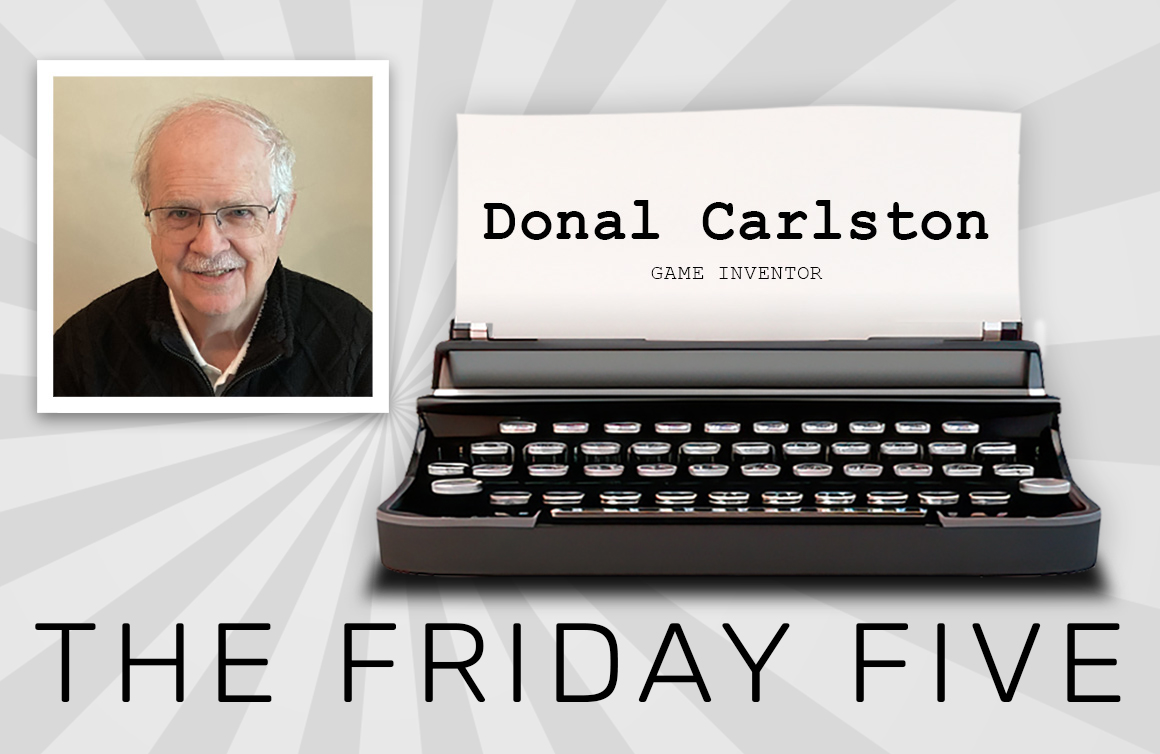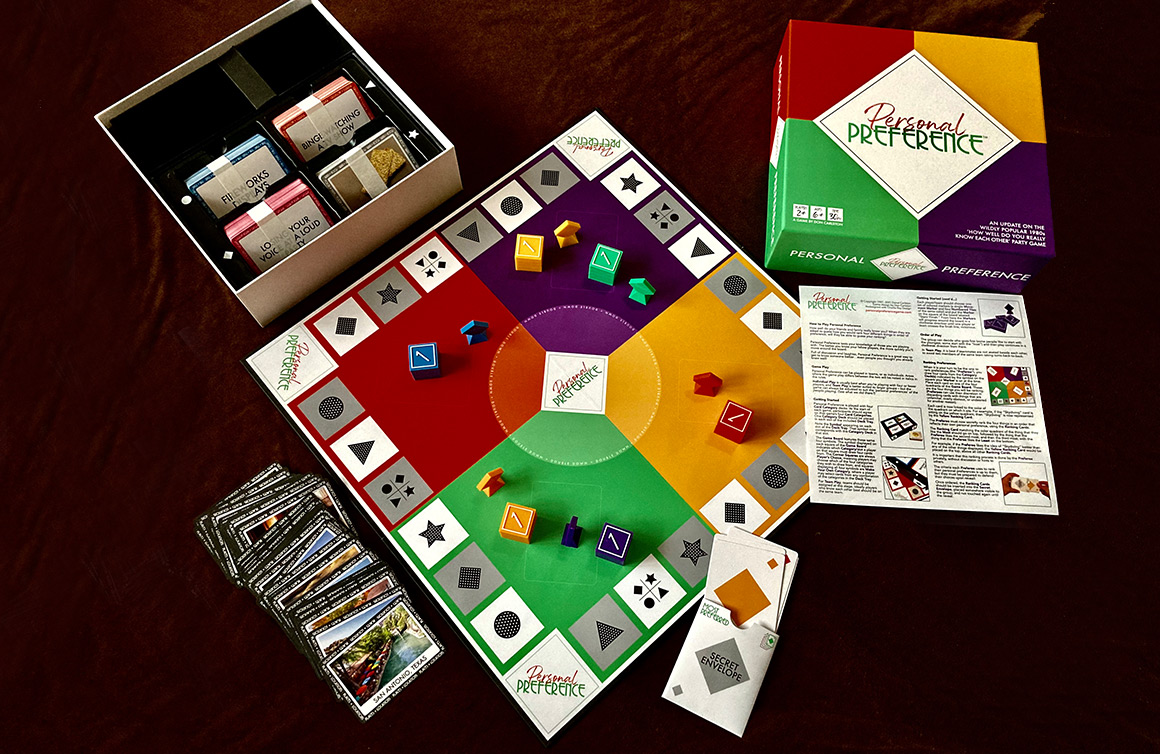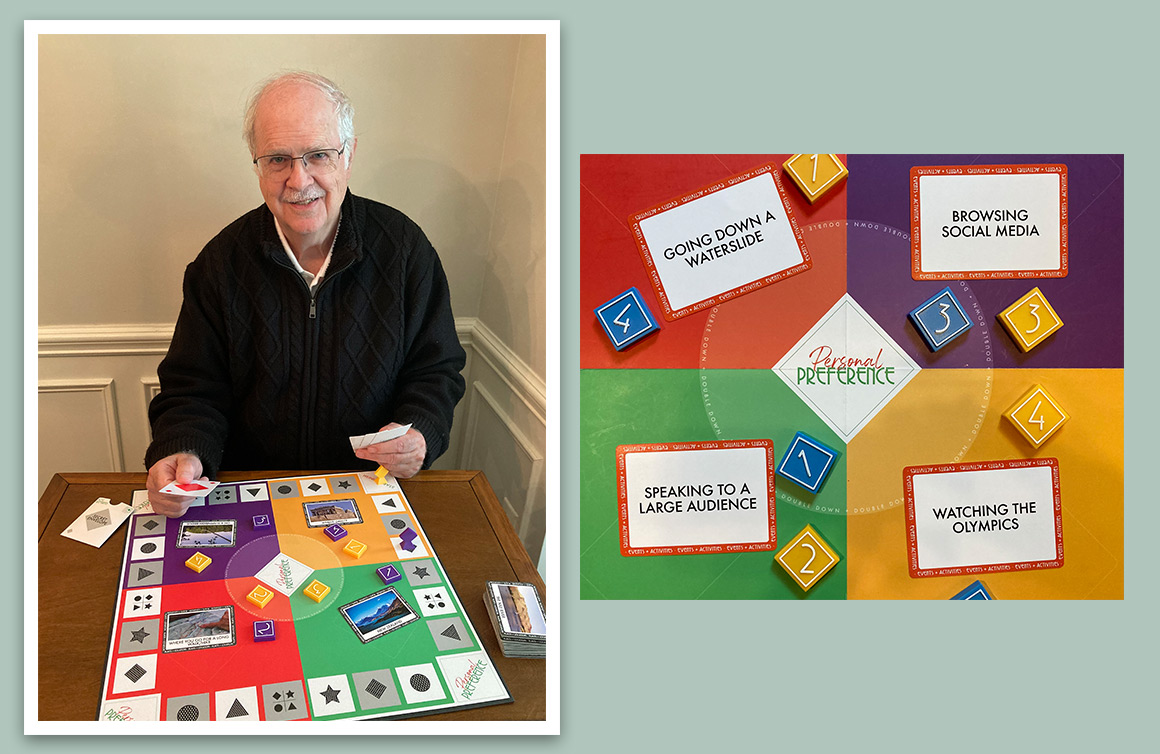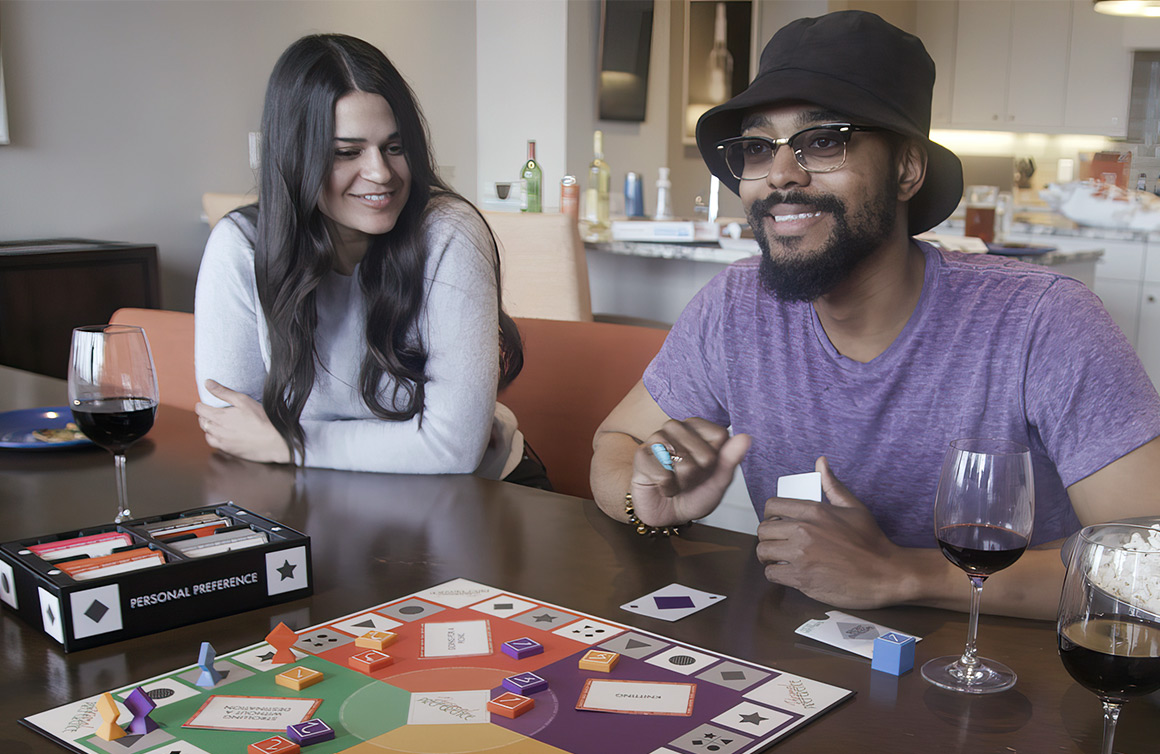Personal Preference was originally released in 1987. Tell me about the early days of the game.
I invented Personal Preference one summer in the late 1980s while I was a social psychology professor at the University of Iowa.
At that time, the popular family board games were Trivial Pursuit and Scruples, and though I enjoyed both games, I also thought I could improve on them. Specifically, I envisioned a game where everyone would be on an equal footing whether or not they had played the game before and were already familiar with the cards, whether or not they were familiar with various trivia, and whether they were super-competitive or just played games for fun. I also wanted the game to be a positive experience where people learned about and enjoyed the people they were playing with.
My research area in social psychology was “person perception”, which relates to how people think about other people, and especially how they form impressions of others. A game based on person perception seemed ideal to me. Everyone has experience trying to read other people, and most of us are curious about how others perceive us. It seemed to me that a game focused on people’s likes and dislikes — their personal preferences — would make everyone an expert and tap into these basic social processes.
I also felt this could be a positive thing. To some extent, we are all defined by what we like to do, where we like to spend time, which celebrities we enjoy, and even the foods that appeal to us. Our preferences are a big part of who we are. For the most part, we are public about, and proud of, these personal preferences, so it isn’t awkward or embarrassing to talk about them — which helps others to get to know us better.
Trying to build a better board game was a pretty natural thing for me to do because my brothers and I used to invent games when we we were growing up together as kids. My brothers went on to found a computer software company, Broderbund, which specialized in games. My older brother, Doug, developed the the company’s first games for the TRS-80 home computer and I invented the first game it sold for the Apple computer. After I created Personal Preference, Broderbund set up a new boardgames division and Personal Preference became their first board game product.
Subsequently, they also licensed the rights to Playtoy in Canada and to Parker Brothers in Great Britain. Personal Preference made Games magazine’s top three party games in 1988 and sold several hundred thousand copies, mostly in North America. But, to make a long story short, I eventually reacquired the rights to the game, Broderbund was sold to a different company, Playtoy went out of business, and after a few unsuccessful attempts to find a new game publisher, I focused on publishing academic books and articles instead.

What made you want to revisit the game with an updated edition?
After Personal Preference was no longer in stores, I received hundreds of letters and emails inquiring about the availability of supplementary or updated card sets. A number of people also wrote every year to say that if I didn’t plan to update or produce the game myself, they would like to buy the rights to Personal Preference from me.
One of the most persistent of these people, Heather Burns, emailed me many times over many years. She is an entrepreneur in Toronto, Canada and though we’d never met — and still haven’t met in person — she impressed me with not just with her persistence, but also with her devotion to Personal Preference and her entrepreneurial skills. She finally suggested that if I wouldn’t sell the game rights to her, she wanted to work with me to get an updated version back on the market. Ultimately, Heather became the project manager for the new version of Personal Preference and her husband, Sean, also contributed to the project in numerous ways.
I retired from teaching a couple of years before the COVID pandemic hit, and although I’m now an emeritus professor at Purdue University, the combination of retirement and the pandemic left me with time to focus again on board games. I put together a team of several of the more persistent Personal Preference enthusiasts who had contacted me in recent years and we began to plan the new version. Heather, her husband, and I were joined by an award-winning documentary film producer who ended up producing some promotional videos for Personal Preference. Others also joined the team at various times and each contributed unique skills and perspectives. Everyone, including Heather, volunteered their time without pay because they were invested in getting Personal Preference republished.
Over the years, I’d had a number of ideas for revising the game — I’ll talk about these a little later — and the team discussed these, along with new card categories and topics, in numerous Zoom calls during the pandemic. Eventually, I added an advisory committee of another 50 Personal Preference enthusiasts who completed surveys sharing their opinions of rules, categories, and cards and who also played test games via Zoom. With the help of all of these volunteers, we created a new version that was not just updated, but also broader and more versatile.

You’re self-publishing the game thanks in part to a successful Kickstarter campaign. Why did you choose that route?
We were really intent on publishing the updated version of Personal Preference come hell or high water. In fact, before the Kickstarter began, we had already arranged with a manufacturer to have ten prototypes built at our own expense. But Heather suggested we use Kickstarter as a way of supplementing our personal funds and to get an initial run of the game distributed to its most enthusiastic fans. If that run generated enough interest and income, we could then use that revenue to finance an additional production run. If we caught the attention of a major game manufacturer or distributor, we might go that route instead. But in any event, we would all have copies of the best social board game we could imagine.
Several factors contributed to my decision to self-produce the game. One is that I was very reluctant to turn control of the game development, design, or production over to someone else. As a social psychologist, I am somewhat of an expert on person perception and I had definite ideas about keeping the game positive and useful as a way of getting to know other people. Moreover, I had developed a number of ideas over the years about how to improve and expand Personal Preference, and other members of the team had as well. Heather and I were especially concerned with maintaining the character of the game and the quality of the game set, even while updating both. I didn’t want to cede our vision and control to people I didn’t know.
So we did all the work ourselves, ordered some prototypes, and set up the Kickstarter program to secure additional funding. I think the hardest thing about the Kickstarter was that we didn’t know how to attract people to it. We knew that there were a large number of Personal Preference fans out there — I have many hundreds of glowing comment cards from the first edition — but we couldn’t figure out how to inform these fans about the campaign. Their decades-old addresses weren’t of much use and our press releases didn’t generate that much publicity. Fortunately, word-of-mouth got us well over our funding goal anyway. Orders continue to roll in on our website, so the project is definitely going ahead.

Walk us through the game — what familiar and new elements are incorporated into the updated version?
On each round of the game, one player draws four cards from some category — like things to do or foods to eat — and secretly ranks these from their favorite to their least favorite. Then other players try to guess that rank ordering, typically discussing the rationale for their perceptions, and possibly doubling down on those guesses in which they are especially confident. Finally, the target player reveals and explains their actual ranking and the others move one space around the board for each guess they got correct — two spaces if the guess was doubled, but one space back if a doubled guess was wrong.
The biggest change from the original 1987 version of Personal Preference is that the new version has been redesigned to allow a variety of different categories of cards to be used.
The basic set now comes with five card decks instead of four. Three of these were carried over from the original game, though the items are virtually all new. Two of these were already mentioned — activities and foods — and there is again a miscellany category with items like dad jokes, pickleball, and same-day delivery. And, we’ve added a new travel category and one involving pet peeves and predicaments such as getting a parking ticket, stepping in a puddle or getting blamed for something you didn’t do.
Supplementary expansion decks are also available depicting art and photography, quotations and sayings, and miscellaneous concepts and ideas (like astrology, crypto, and free enterprise). We hope in the future to release a children’s card deck, one depicting current celebrities and perhaps others covering television shows, movies, rock groups, and the like. The game is played with any four card decks at a time, but a player who lands on a corner square can choose which category to play, even swapping out one of those four decks for a new one.
There are some other minor tweaks that were added as options. Players can play either individually or as teams, they can initially hide their guesses rather than publicly declaring them, or they can wait to double until they see what everyone else has guessed. These were rules that had been used by other team members over the years, so we incorporated them as variations that players can adopt if they wish.
There are some other minor refinements as well, but the essential nature and appearance of the game is very little changed — in fact, if one wanted to, one could actually combine the old and the new game sets, incorporating cards from the original game into the new one.

Why are games important to interpersonal relationships?
Play is a pretty fundamental instinct for most humans — in fact, for many species of animals as well. Playing games gives people a way to interact in a structured context that fosters thinking, creativity, and a sense of accomplishment. Perhaps most importantly, many games encourage interaction and conversation while giving players an activity to talk about so that conversation flows effortlessly. With Personal Preference, what people talk about is each other in a way that is generally nonthreatening and that enhances friendships. This promotes engagement both with the game and with other players.
The pandemic made it more difficult for people to connect with others. Kids’ activities were curtailed, social gatherings occurred less frequently, and many people worked from home. A lot of people seem to have slipped into periods of solitary engagement with their computers or smartphones. The need for connectedness is probably even greater right now than it was previously. Our hope is that Personal Preference can be a useful icebreaker and social facilitator as people look for ways to increase their interactions with others.
Our newest card decks even have some educational value, exposing players to works of art, famous quotations, and important ideas. Perhaps most importantly, the game can help educate people about the preferences, values, and perceptions of their friends and families.

Where can people buy the game?
Now that the Kickstarter campaign is over, people can order Personal Preference and the supplementary expansion card sets from our website, PersonalPreferenceGame.com. For now, the terms are exactly the same as they were for the Kickstarter — people prepay, and barring unforeseen delays, orders will be fulfilled in December, in time for Christmas.

Visit the Personal Preference website to order the game and expansion packs.





